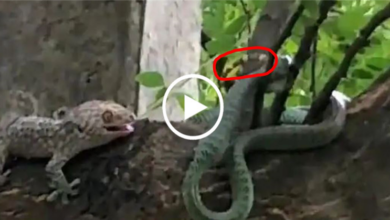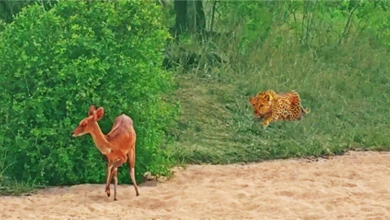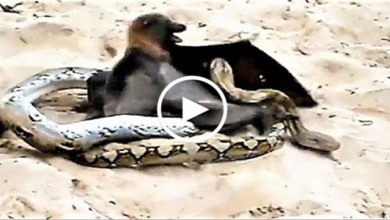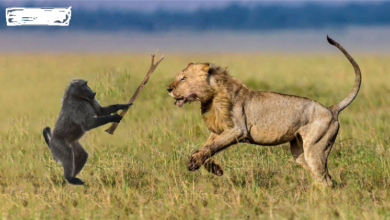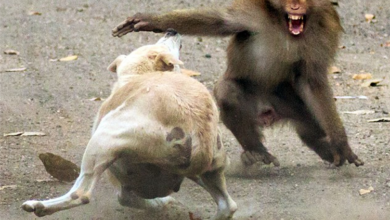
This extremely interesting sighting was captured by 37-year-old, tour guide, Francis Kijazi while enjoying a game drive with his guests in Ngorongoro Conservation Area, Tanzania.
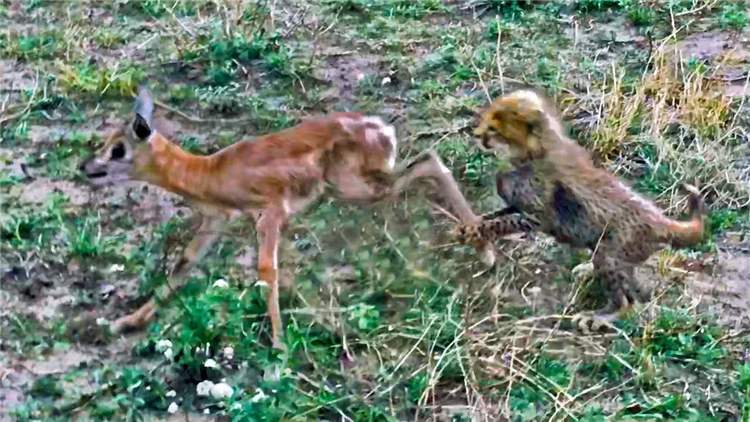
Francis tells LatestSightings.com the story: “This incredible sighting happened during an evening game drive in the Ngorongoro Conservation Area, bordering Southern Serengeti plains in Tanzania. We spotted a female cheetah with 4 small cubs – possibly two months old. We stayed with them for some time as the mom seemed to be on the lookout for a snack. Seeing that they had eaten properly the day before.”
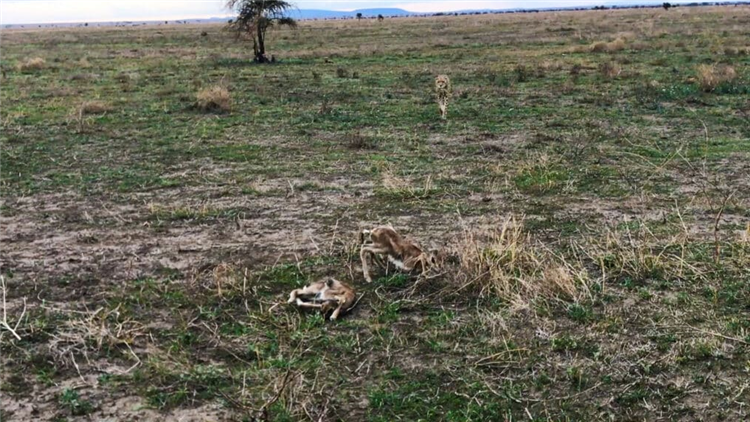
“By chance, a baby Grant’s gazelle happen to stroll past, obviously in search of its mother. This baby came across another baby and decided to lie down for a break.”
From the footage, it is clear that both these gazelle are but a day or so old, as one can see they struggle to maneuver around, as well as the presence of their umbilical cords still well-attached to the stomachs.

“Of course, the cheetah mom noticed the whole thing and started stalking towards them. However, she found the baby gazelles so weak, enough for her cubs to play with. Thus she did not kill the gazelles just yet, instead, she called her babies to take part in a hunting lesson.”

“The gazelles tried to put up a wee bit of a fight, but ultimately mom decided to take one for the family, and of course, the cubs were ecstatic! One gazelle ultimately does manage to get away though, leaving the cheetahs somewhat confused.”

“Francis says that this was his first time in 12 years to ever witness cheetah cubs of this size and age, to actually attempt hunting. Generally one would see it from an age of 5-8 months old. We were very fortunate to witness a female cheetah and her four 2-month old cubs take down a newborn Grant’s gazelle.”
“It may seem impossible and heart-breaking, but one should never interfere with what might be playing out in nature. For instance, trying to rescue the baby gazelle from what may seem brutal in the human eye. Therefore, instead, sit quietly and observe and enjoy the very rare behavior, because it also comes down to the survival of the cheetah population in the African bush.”

